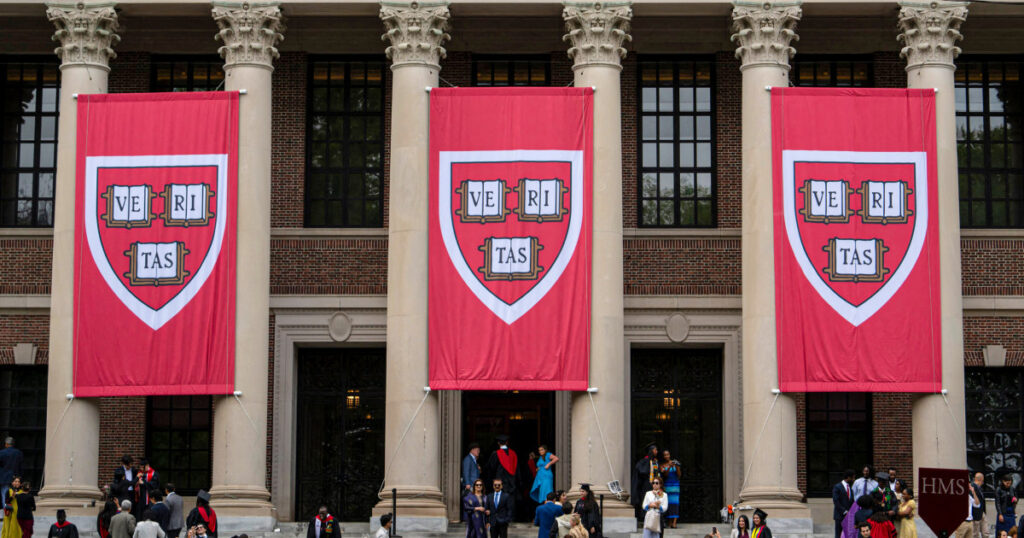U.S. Tightens Social Media Scrutiny for Visa Applicants Targeting Harvard University
The Biden administration is intensifying its review process of visa applicants aiming to attend Harvard University, as revealed by a recent diplomatic cable circulated to U.S. embassies and consulates worldwide. This directive signals a strategic shift toward more rigorous vetting procedures, particularly focusing on social media activity, to address concerns related to campus safety and ideological extremism.
Enhanced Screening Measures and Their Scope
According to the internal communication signed by Secretary of State Marco Rubio, U.S. diplomatic missions are instructed to escalate the scrutiny of visa applicants associated with Harvard, including prospective students, faculty, staff, contractors, guest speakers, and visitors. The new protocol emphasizes a comprehensive review of social media profiles, with the goal of identifying any signs of anti-Semitic harassment, violence, or extremist views.
This intensified vetting process is part of a broader effort to mitigate perceived threats of violence and anti-Semitism on university campuses, particularly at Harvard, which has been a focal point of controversy. The cable explicitly states that all non-immigrant visa applicants-those seeking temporary entry into the U.S.-must undergo this enhanced screening, which aims to prevent individuals with problematic online histories from entering the country.
Social Media as a Key Factor in Visa Evaluation
U.S. consular officers are now directed to request applicants to make their social media accounts publicly accessible during the visa application process. This measure is intended to facilitate a thorough review of online activity, with officials also considering the absence of an online presence or the use of private or restricted accounts as potential red flags indicating evasiveness or dishonesty.
The directive underscores the administration’s concern over the campus environment at Harvard, criticizing the university for allegedly failing to maintain a campus atmosphere free from violence and anti-Semitism. The review process will scrutinize applicants’ social media for any evidence of anti-Semitic harassment or violent rhetoric, aligning with the administration’s broader security and ideological screening policies.
Operational Changes and Broader Implications
In conjunction with these new screening measures, the State Department temporarily halted scheduling interviews for international students seeking U.S. visas earlier this week. This pause was intended to prepare consular staff for the increased workload associated with the expanded social media review process.
This move marks another chapter in the ongoing tension between the federal government and Harvard University. The administration has previously attempted to influence Harvard’s policies on faculty hiring, admissions, diversity initiatives, and international student enrollment-efforts that have faced legal challenges and public resistance. Notably, a recent court ruling extended a temporary block on the administration’s attempt to revoke Harvard’s ability to admit international students.
Potential Expansion and Broader Policy Goals
The current social media vetting initiative is described as a pilot program, with the potential for expansion to include other categories of visa applicants in the future. The administration has indicated that this approach may serve as a model for broader immigration enforcement strategies, especially targeting foreign students and scholars.
Recent actions against international students include visa revocations, detentions, and deportations, particularly targeting individuals involved in protests related to Israel’s military operations following the October 7, 2023, Hamas attack. These measures reflect a broader effort to scrutinize foreign nationals’ online activity and political affiliations.
Political Statements and Future Directions
Senator Marco Rubio announced that the Department of State would collaborate with the Department of Homeland Security to intensify efforts to revoke visas for Chinese language students, citing concerns over espionage and national security. This statement underscores the administration’s focus on foreign influence and ideological security within academic institutions.
Conclusion
The Biden administration’s renewed emphasis on social media screening for visa applicants seeking entry to Harvard and potentially other U.S. institutions signals a significant shift in immigration policy. While aimed at safeguarding campus environments and national security, these measures also raise questions about privacy, academic freedom, and the scope of government oversight in educational settings. As the program develops, its impact on international student mobility and university autonomy will likely remain a contentious issue in U.S. immigration and higher education policy debates.
By Abigail Williams and Suzanne Gamboa, NBC News

